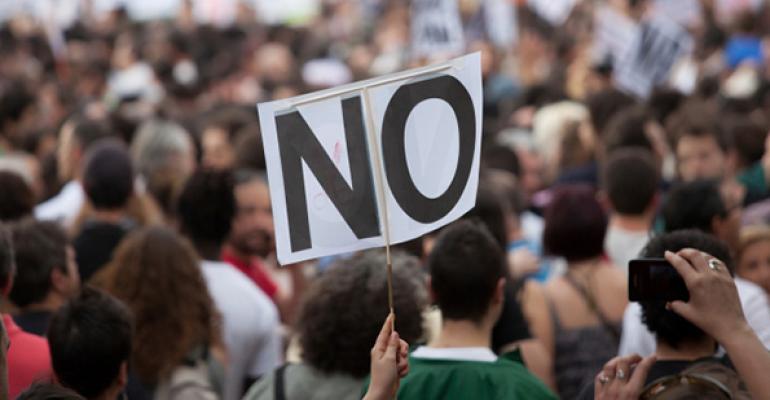Workers calling for an increase in the minimum wage to $15 per hour staged strikes Thursday in more than 190 U.S. cities.
While previous strikes have targeted quick-service restaurants, Thursday’s effort was considered one of the largest, including hourly workers in other industries, such as airport, gas station, and retail and convenience store employees.
In cities including Boston, Chicago and Kansas City, Mo., workers marched in front of McDonald’s, Dunkin’ Donuts and Burger King restaurants, arguing that the federal minimum wage of $7.25 per hour is not enough to raise families above the poverty threshold.
Halle Smith was among about 50 demonstrators outside a Milwaukee Taco Bell, and told Reuters she has made minimum wage for about three years working two jobs, at a Sonic Drive-In and at a group home. “I shouldn’t have to have two jobs just to survive,” she said.
The “Fight for 15” movement has been funded in part by the labor group Service Employees International Union, or SEIU, which on Thursday described the demonstrations as a signal of mounting community support for the restoration of justice, and one that will impact elections in 2016.
“From McDonald’s and Walmart parking lots, to the streets of Ferguson and New York, nationwide, communities are rising up — through actions, strikes and protests — crying out because they believe that a better path forward is possible,” SEIU president Mary Kay Henry said in a statement. “The economy and our country are out of balance because so many people are trying to raise families on service-sector paychecks but are getting crushed as corporations use their power to push down the wage floor.”
Saru Jayaraman, cofounder and co-director of the Restaurant Opportunities Centers, or ROC, which has supported the demonstrations, said in a statement that the fight for workers’ rights and civil rights are the same.
“The majority of the absolute worst-paying jobs in the country are restaurant jobs,” she said. “It is not a coincidence that the restaurant industry is also the largest employer of people of color, or that women make up the majority of people forced to live off tips, getting paid a subminimum wage as low as $2.13 an hour by their employers.”
Jayaraman called out Darden Restaurants, saying the casual-dining operator could start employees at $15 per hour by charging an extra dime for every $5 in sales.
“The corporate resistance to paying a living wage is not because they cannot afford to do it; it’s because they just don’t want to,” she said. “By standing together to demand the restaurant industry do right by all their workers and pay a living wage, we’re demanding our humanity be prioritized above corporate profits and bloated CEO salaries.”
Rich Jeffers, director of communications for Orlando, Fla.-based Darden, said the average wage for its hourly employees is already about $15 per hour.
McDonald’s Corp. also responded with an updated statement Thursday, saying the company and its independent franchise operators support paying a fair wage aligned with a competitive marketplace.
“We believe that any minimum wage increase should be implemented over time, so that the impact on owners of small and medium-sized businesses — like the ones who own and operate the majority of our restaurants — is manageable,” McDonald’s statement said. “Additionally, we believe that any increase needs to be considered in a broad context, one that considers, for example, the impact of the Affordable Care Act and its definition of ‘full-time’ employment, as well as the treatment, from a tax perspective, of investments made by business owners.”
The International Franchise Association, or IFA, said in a statement that the protests were little more than an attempt to grow union membership.
“The protests are being conducted under the guise of increased wages, when, in fact, it is a blatant pretext to unionize employees at thousands of independently owned, local franchise businesses in order to grow the coffers of union leadership,” said Steve Caldeira, IFA president and chief executive. “Unfortunately, these protests are really harming the workers the labor unions are claiming to help. There is no widespread, organic evidence that employees of any fast-food franchises are walking out on their jobs on their own volition.”
Earlier this year, federal lawmakers blocked an effort to increase the U.S. minimum wage to $10.10 per hour. The wage debate has since shifted to the state and local level.
Seattle’s City Council and San Francisco voters have both approved a $15-per-hour minimum wage that will phase in over several years.
This week, Chicago’s City Council approved a plan to raise its minimum wage to $13 per hour by 2019.
After the first of the year, wage hikes will take effect in Florida, Alaska, Arkansas, Nebraska, South Dakota and possibly Illinois.
Contact Lisa Jennings at [email protected].
Follow her on Twitter: @livetodineout





